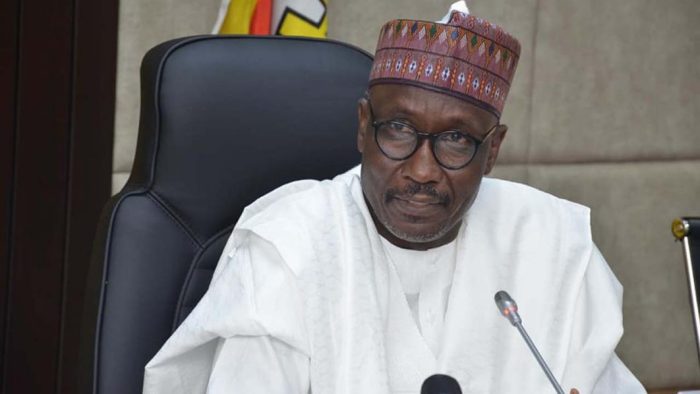Peter Mbah, the governor of Enugu state, South East Nigeria means business judging by his ironclad focus on governance without getting distracted by issues of petty partisan politics. Since his emergence as the governor of the coal rich state, the 51 years old lawyer, politician and multi-billionaire businessman has been in the news in most parts for the right reasons. To restore the economic fortune of Enugu state and provide security for lives and properties, Governor Mbah took the bold but politically incorrect decision to put an end to the ‘’Sit at Home’’ directive that was imposed by militant separatists elements in the South East region every Monday. As a fallout out of the arrest and detention of Nnamdi Kanu, the leader of the Biafra separatist Indigenous People of Biafra [IPOB] group by the federal government of Nigeria, a weekly sit at home order was imposed to protest what his supporters deem his continuous illegal detention.
For a highly commercialized region like the South East, whose people are industrialists, merchants and traders, from whose markets much of the rest of Nigeria sources its goods and services for both retail and wholesale purposes, the decision to sit at home on Mondays crippled the economic activities of this once prosperous part of Nigeria. And to make matters worse, the attempt by armed separatist insurgents to forcefully enforce their sit at home order resulted into the destruction of lives and properties of the people in a manner that turned Nigeria’s most peaceful regions to one of the most terrorized. This was the situation in Enugu before Governor Peter Mbah assumed office in May this year.
Buoyed by his ambitious campaign promise to grow the economy of Enugu state from 4 billion dollars to 30 billion dollars in eight years, Mbah knew he needed to hit the ground running from his first day in office from the point of security of lives and properties for the purpose of reviving the existing economy of the state. Through a combination of public advocacy, dialogue, ramping up of security measures to ensure enforcement of law and order in the state and his personal appeal to federal authorities to release Nnamdi Kanu, Governor Mbah has largely succeeded in putting an end to the menace of weekly sit at home compliance by the people of the state.
During his campaign, Mbah had promised to revive the Enugu Urban water scheme that was moribund for about two decades within 185 days in office. And keeping true to his promise, on 25th November 2023, Governor Peter Mbah commissioned the first phase of the Enugu Urban water scheme after many months of rehabilitation works on the moribund infrastructure. The completed first phase is expected to supply 70 million liters of water daily to homes and businesses with a promise to complete the second phase of the water scheme in the coming weeks, which will increase the daily supply of water to 120 million liters daily. The restoration of pipe borne water supply is expected to ameliorate the suffering of homes and businesses arising from acute water shortage in Enugu city and environs. Speaking at the commissioning event, Governor Mbah who described this feat as only a fulfillment of his social contract with the people of Enugu said ‘’we also chose to give ourselves a target of resolving this challenge in 180 days not for the purpose of chest thumping but rather because first, the issue is urgent’’.
In addition to assembling a strong team of technocrats that is inclusive of Nigerians from diverse ethno-geographic and religious backgrounds and putting in place structural and institutional frameworks to attract Foreign Direct Investments, Mbah’s fiscal discipline and financial prudence as demonstrated by his 2024 spending plan has left no one in doubt that indeed the governor means the business of governance in Enugu state. Dubbed ‘’The Budget of Disruptive Growth’’ to underscore his ambitious drive to grow the state’s economy from 4 billion dollars to 30 billion, Governor Peter Mbah has proposed to spend a total of 521.5 billion naira in the coming year. But as a clear departure from the norm, Mbah’s spending plan is committing more resources to capital than recurrent expenditure.
Out the proposed 521.5 billion naira spending plan, 414.3 billion naira is earmarked for the capital component, representing 79% of the budget while the recurrent component has 107.2 billion naira approximating to 21%. For many years policy makers and economists have advocated for spending plans that weighs heavily in favour of capital against recurrent expenditure without much success as most government’s budget at both central and sub national levels continue the practice of allocating more funds for recurrent than capital components. The ratio of capital to recurrent expenditure in Mbah’s first spending plan as the governor of Enugu state is a rare precedence in Nigeria and represents a sure first step in the direction of economic growth and development of the state, as the huge capital component will ensure critical infrastructural development that will enable the realization of his vision of a 30 billion dollar economy.
However, the high point of Mbah’s 2024 fiscal plan is his commitment to the Human Capital Development of Enugu State and its people by prioritizing funding for education. The allocation of 134.9 billion representing 33% of the total budget to education; an amount that surpasses the UNESCO recommendation of between 15% and 20% for developing countries, clearly underscores Governor Mbah’s understanding that the greatest resource base of Enugu state is its human resources. And this important resource base must converted into capital through quality and accessible education to power and drive the ‘’disruptive growth’’ agenda of his administration. According to Governor Mbah ‘’education is a key plank of our strategy to eradicate poverty in our state’’ and the huge spending is to ‘’help reinvent education in our state by developing the new smart schools, which I mentioned earlier, as well as repositioning our senior secondary and tertiary institutions by training and retraining teachers and updating our curricula across all levels of education to infuse technology appreciation and skills’’.
As commendable as Mbah’s budget is and good as it looks, the political will, integrity and discipline to implement it is more important. If fully implemented and desired outcomes achieved, Governor Peter Mbah may have set a new standard in budgeting that may influence a paradigm shift from the norm at both central and sub-national levels of governments.



